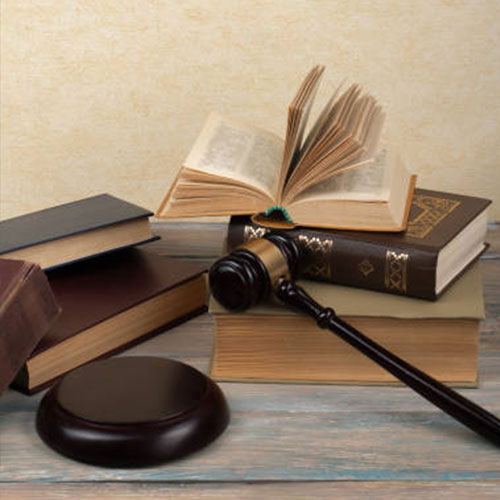- Internet Rumor Damage
Damage caused by rumors on the Internet can be handled by law

It is not sometimes impossible for a malicious person to debilitate the reputation of a particular company because, unlike face-to-face dialogues, it can be asserted from places that are unilaterally invisible.Information on the Internet can spread in an instant via blogs and bulletin board sites, and the more negative the content is, the more likely it is to be.Therefore, when a bad reputation is posted on the Internet, its impact can be immeasurable and often causes great damage to the real world. However, even in these cases, there are legal countermeasures available.These harmful rumors and slanders can be eliminated by the site's operator (provider) and the person who wrote them through the appropriate process. You can also claim damages if you can obtain an IP address and identify the sender (writer).
However, since the storage period of IP addresses of each site operator is short, it is important to promptly take actions.
Is there any such problem on the Internet?
Negative keywords are displayed as search candidates.
There is a negative expression in the relevant words of the search results.
Defamation is written on boards such as two channels.
Sites or blogs that unilaterally describe negative content exist
Negative information scattered over the Internet can cause enormous damage to companies and organizations.
 If the negative information that can be seen on the Internet is left unattended, the following risks can be assumed.
If the negative information that can be seen on the Internet is left unattended, the following risks can be assumed.
- Damage the image of a company or product
- Lower orders and contracts
- Lower staff morale, leading to an exodus of talent
- Be terminated by suppliers
- Difficulty in hiring and recruiting employees
- Loss of credibility and leakage of personal information and confidential information
Don't try deletion requests without knowledge!
 It is inappropriate to apply for deletion without professional knowledge.
It is inappropriate to apply for deletion without professional knowledge.
Deletion requests that are not based on accurate procedures or evidence will not only be rejected, but may also make things worse by letting the person posting the message about your deletion request know.
Instead of trying to request deletion easily based on information written on the Internet, first consult a person with expertise in net slandering before taking action.
Appropriate handling by experts is the safest and most effective means.
It is extremely difficult for the average person without expertise to counter the posts on the Internet. Not only is it completely ineffective, but it often makes things worse.
In order to minimize the damage, you should ask a legal professional who is strong in online issues to handle the situation. Our firm offers a free consultation service, so feel free to contact us first for a free consultation.
Specific measures to cope with harmful rumors (procedures based on Law concerning the Liability of Internet Service Provider)

In May 2002, the "Law concerning the Liability of Internet Service Provider" came into effect.
The official name is "the Act on the Limitation of Liability for Damages of Specified Telecommunications Service Providers and the Right to Demand Disclosure of Identification Information of the Senders", which is generally referred to as the "Law concerning the Liability of Internet Service Provider".
The enactment of this law provides a legal basis for requesting the deletion of the written content and for requesting the disclosure of information by those who have written it. Specific measures that can be taken in accordance with the law are as follows.
Requests for deletion of SNS content such as 2-channel bulletin boards, blogs, and Twitter
If it is believed that the content written on the Internet is harmful to rumors, you can request that the writing be deleted along the "Law concerning the Liability of Internet Service Provider".
Identify the content of the write you want to delete (infringing information), where it is written, and the reason for the infringement, and request the provider that can prevent the transmission of the infringing information to delete the content.
The provider who receives the request for deletion confirms that the person who writes it agrees to the request for deletion and determines whether or not to actually delete it.
If the person who wrote did not respond within seven days that he or she did not agree to the request for deletion, the providers can delete posts at their own discretion
In such a case, it is expected that the write contents will be deleted.
Petition for Provisional Disposition of Request for Deletion of Write
It is also possible that the provider does not respond to the request for write deletion.
In this case, you may file a provisional disposition to order the provider to delete the write in court proceedings.
Provisional dispositions are more expeditious than ordinary court proceedings.
Caller Information Disclosure Request
In addition to curbing harmful rumors, the provider can also be asked to disclose information about the person who wrote the content in order to identify the perpetrator of the slander.
You may have to request the disclosure of the caller information more than once, for example, when you have been through multiple providers from a communication route.
Claim for damage
If the person who wrote the information can be identified, the compensation for damage may be claimed according to the contents of the written information.
For those suffering from internet rumors in Matsuyama City
 The Internet rumor attorneys are far more sympathetic to those who suffer from harmful rumors on the Internet.
The Internet rumor attorneys are far more sympathetic to those who suffer from harmful rumors on the Internet.
Please feel free to consult our office because we have a good track record in our "request for prompt deletion" and "claim for damages from the disclosure of the sender's information."
While internet damage spreads over time, the IP address of the sender of the information is difficult to store for a long time.
We look forward to hearing from you as soon as possible.


